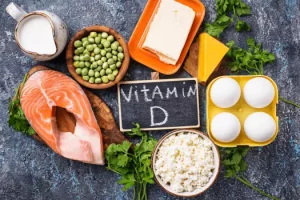Adequate protein intake is necessary for bodily functions like muscle strengthening, preserving lean body mass, wound healing, and cell signaling. This macronutrient is required for the overall health of the mother and is required as much for the development of the fetus. How much protein in pregnancy is necessary and what are the foods to be included in your diet to procure the desired level of protein are discussed in detail in this article.
Why Protein is Required During Pregnancy?
Amino acids, the building blocks of protein, facilitate several bodily functions like maintaining muscle, bone and skin structure, aiding muscle growth, and producing hormones required for growth.
A high protein diet in pregnancy is required for the baby’s development since amino acids are necessary for the functioning and growth of cells. Sufficient intake of protein will also minimize pregnancy-related risks like preterm birth.
Recommended Protein Intake During Pregnancy
The recommended protein in pregnancy depends on various factors like the stage of pregnancy, especially during the second and third trimester, your weight, and activity levels. However, the recommended daily protein intake is 71 grams per day. To determine the protein requirement during pregnancy, you will have to add 25 gms to the normal recommended protein intake in non pregnant state. Getting the right nutrition during pregnancy is vital to provide your baby with the required nutrients for proper development.
Foods to Include During Pregnancy to Enhance Protein Intake
To ensure required protein intake during pregnancy include the following foods in your diet.
Dairy Products
Dairy products provide the extra protein required during pregnancy along with the other essential nutrients required. Yogurt, milk, and cheese are good choices. Dairy products provide casein and whey, the two high-quality proteins along with calcium, phosphorus, magnesium, zinc, and B Vitamins. Yogurt is beneficial to maintain digestive health as it contains probiotic bacteria.
Eggs
Eggs are a good source of protein and provide you with a little quantity of every nutrient. You can derive about 3.6 grams of protein along with fat and several other vitamins and minerals. Eggs also contain choline which is vital for the development of a baby’s brain. Choline also prevents abnormalities of the spine and brain in the growing baby. A single egg contains about 147 mg of choline
Lean Meat
To meet protein requirement in pregnancy, you need to include high-protein sources like lean pork, beef, and chicken all of which contain high-quality protein along with iron, B Vitamins, and choline. During pregnancy higher intake of these nutrients is important.
Legumes
It is not essential that only animal foods are a rich source of protein. Legumes like beans, peas, chickpeas, lentils, etc are also rich sources of plant protein along with other nutrients like iron, folate, calcium, and fiber which are highly essential during pregnancy.
Whole Grains
Whole grains like quinoa, oats, and barley are good sources of protein. Quinoa is considered a complete protein source as it contains all nine essential amino acids. Whole grains are also sources of magnesium, B Vitamins, and fiber.
Peanut Butter
Peanut butter is an excellent source of that extra protein in pregnancy. You can spread the consumption throughout the day by topping various snacks with peanut butter.
Tofu
Tofu makes an excellent addition to your high protein diet in pregnancy to provide that extra protein required. You also get an additional intake of zinc, calcium, and iron.
Conclusion
Enhancing protein in pregnancy is crucial to provide adequate fuel for your baby’s growth. Plan a high protein diet comprising whole grains, chicken, lean meat, legumes, vegetables, etc. In a quest to increase protein intake, you should not neglect other minerals and nutrients essential for you and your baby’s overall health.
Plan a diet that satisfies the protein requirement during pregnancy and also provides the other essential minerals and nutrients required for proper fetal growth.
Popular Searches
Best Diet Plan For Gym Beginners | Reasons For Extreme Fatigue | Food With High Protein And Low Calories | Folic Acid Benefits For Women | Omega 3 Benefits For Men | Low Calorie Fruits | How To Boost Stamina | How To Stop Shaving Cuts From Bleeding | Is Vegan Protein Complete | Glutathione Supplement Benefits | High Protein Vegetarian Foods | Best High Protein Vegan Foods


